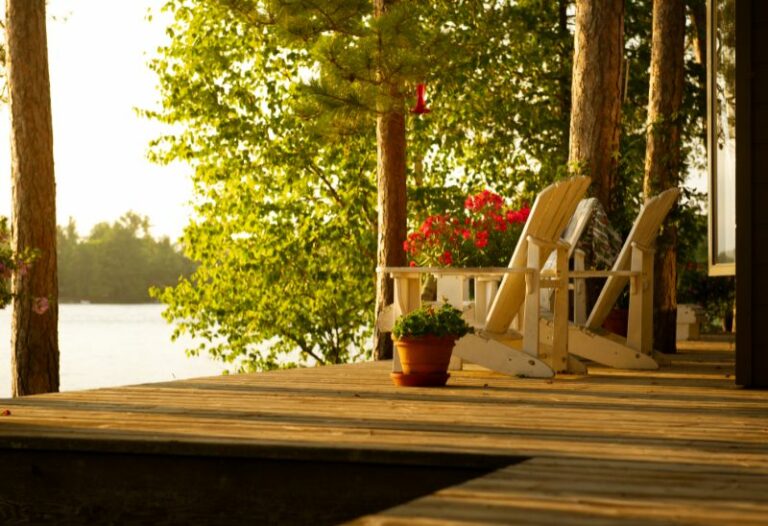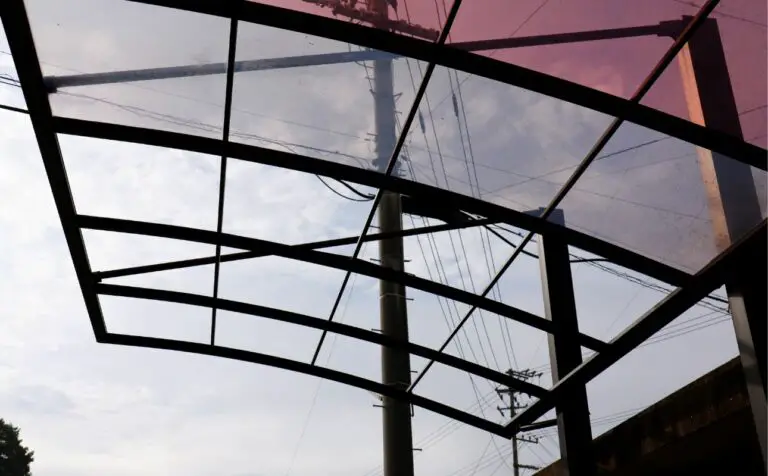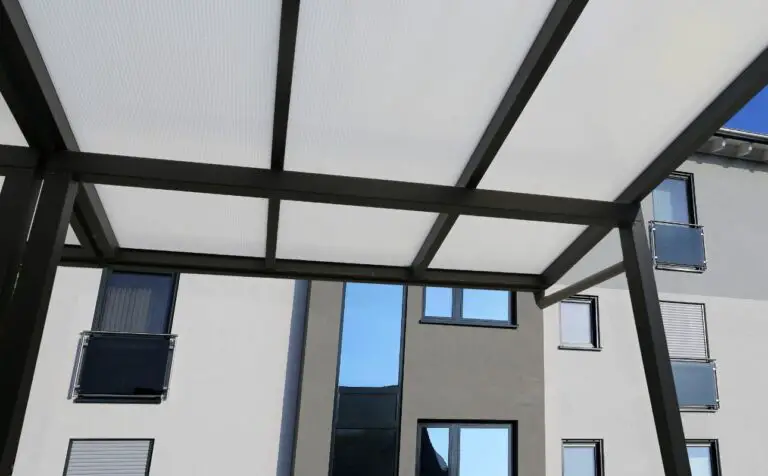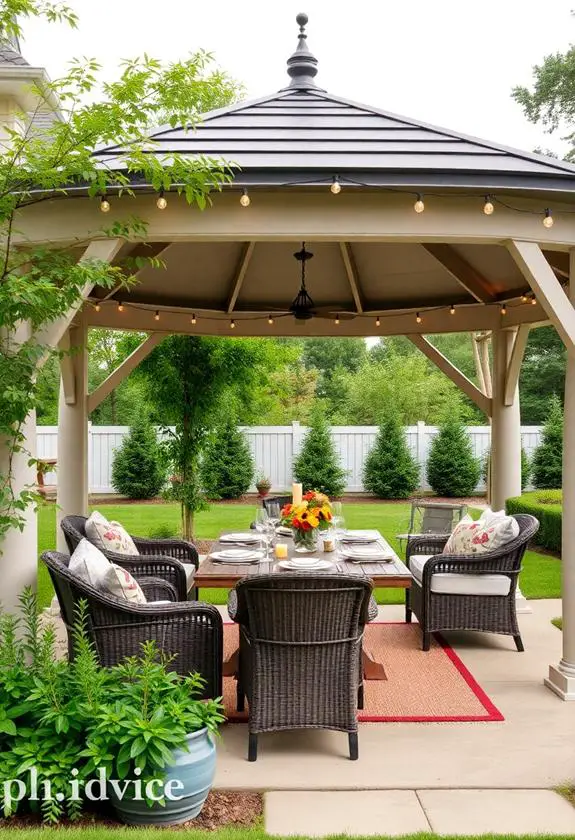When it comes to constructing a carport on your property, one of the main concerns is whether or not it will be considered a permanent structure. This question is particularly important for those who live in areas with zoning and permit requirements that regulate the construction of permanent structures.
As the saying goes, ‘a man’s home is his castle.’ But what about his car? For many people, their vehicles are just as valuable as their homes. This is where carports come in – they provide protection from the elements and keep your vehicle safe from theft or vandalism.
However, not all carports are created equal when it comes to their permanence. In this article, we will explore the various factors that determine whether metal carports are considered permanent structures and examine the pros and cons of using them on your property.
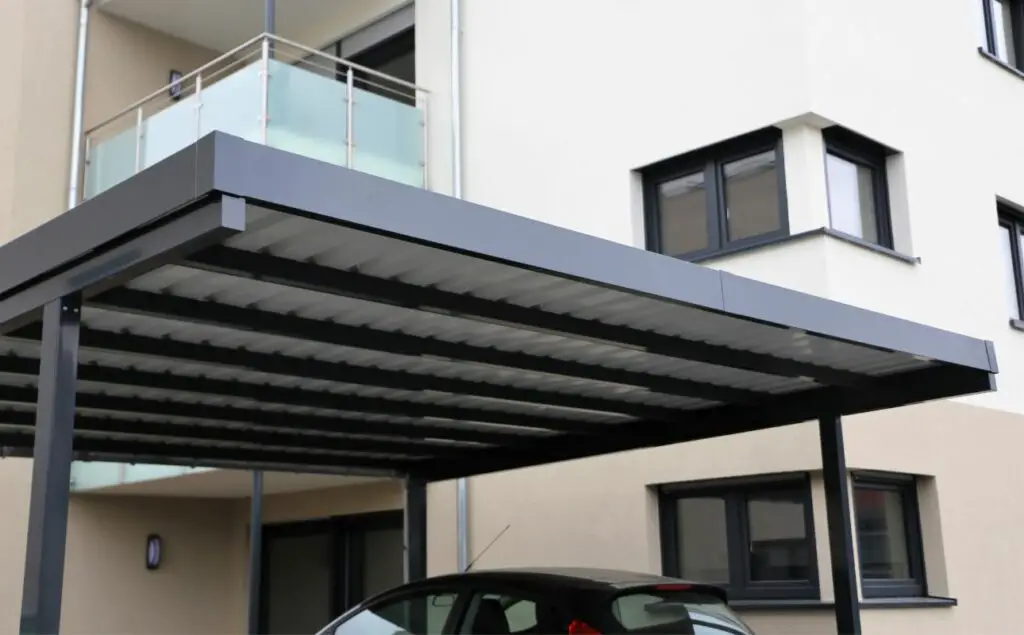
Defining Permanent Structures
Temporary structures are typically defined as those that can be easily dismantled or moved without causing significant damage to the ground or surrounding environment.
They offer several advantages such as flexibility, affordability, and ease of installation. However, they also come with their own set of drawbacks such as limited durability, susceptibility to weather conditions, and lower resale value.
Building codes for portable structures vary by locality but generally require them to meet certain safety standards such as wind resistance, fire retardance, and electrical wiring regulations.
Types of Carports
A variety of carport types are available, from basic open-air designs to more complex structures that offer additional protection and features. Steel and aluminum carports are the two most common material options for constructing these structures. Steel is a durable option that can withstand harsh weather conditions, while aluminum is lightweight and easy to install.
Carports can also be classified as freestanding or attached to an existing structure. Freestanding carports are self-supporting and do not require any support from a building, while attached carports are connected to the side of a house or garage.
Factors that Determine if a Carport is Considered Permanent
Factors such as durability, installation methods, and the ability to withstand weather conditions can determine if a carport is regarded as a long-term investment rather than a temporary solution.
Building codes play an important role in determining whether or not your carport is considered permanent. These codes vary from state to state and may require specific requirements for construction materials, foundation type, and roof pitch.
Insurance coverage also plays a significant role in determining whether or not your carport is considered permanent. If your insurance policy only covers temporary structures, then your carport may not be regarded as a permanent structure by your insurer even if it meets building code requirements.
Zoning and Permit Requirements
Compliance with zoning laws and obtaining proper permits are crucial steps in ensuring the legality of constructing a shelter for vehicles on your property.
Zoning restrictions vary by location, so it is important to check with your local government agency to determine if you can construct a carport on your property.
The permit application process may also differ depending on where you live, but typically requires submitting plans for review and approval by the appropriate authorities.
Failure to comply with zoning laws or obtain necessary permits can result in fines or even legal action against the property owner. It is important to consider these factors before investing in a metal carport as a permanent structure on your property.
Pros and Cons of Metal Carports
Metal carports offer specific advantages and disadvantages compared to other types of carports. Here are the pros and cons of metal carports:
Pros of Metal Carports:
- Durability: Metal carports are known for their strength and durability. They are designed to withstand harsh weather conditions such as heavy rain, snow, strong winds, and UV exposure. Metal carports are less prone to damage from rot, insects, or decay compared to wood or fabric carports.
- Low Maintenance: Metal carports require minimal maintenance. They do not require regular painting or staining, unlike wood carports. Cleaning the metal surface periodically and addressing any rust or damage is usually sufficient to maintain their appearance and functionality.
- Fire Resistance: Metal carports offer a higher level of fire resistance compared to wood carports. This can be an important consideration, particularly in areas prone to wildfires or for individuals concerned about fire safety.
- Security: Metal carports provide better security for vehicles and stored items. Their solid structure makes it more difficult for intruders to access the carport compared to fabric or open carports. Additionally, metal carports can be fitted with locks and security features for enhanced protection.
- Versatility: Metal carports come in various sizes and styles, offering flexibility to accommodate different types of vehicles and storage needs. They can be customized to fit specific dimensions or design preferences.
Cons of Metal Carports:
- Higher Cost: Metal carports generally have a higher upfront cost compared to fabric or canopy carports. The cost of materials, manufacturing, and installation contribute to the higher price. However, the long-term durability and minimal maintenance requirements can offset this initial investment.
- Limited Aesthetics: Metal carports may not provide the same aesthetic appeal as wood carports or other structures. The utilitarian design of metal carports may not blend seamlessly with the architectural style of some properties. However, there are options available to improve the appearance, such as adding decorative elements or choosing a style that better matches the surroundings.
- Heat Retention: Metal carports can retain heat, especially when exposed to direct sunlight. This can result in higher temperatures inside the carport, potentially affecting items stored within. Adequate ventilation or insulation measures may be necessary to mitigate heat retention.
- Condensation: In certain weather conditions, metal carports can experience condensation buildup, particularly when there are significant temperature variations. This can lead to moisture-related issues and potential damage to vehicles or stored items. Proper ventilation and insulation can help mitigate condensation problems.
- Noise: Metal carports can produce more noise during rain or hailstorms compared to fabric or canopy carports. The sound of rain hitting the metal surface can be amplified, which may cause disturbances for individuals residing near the carport.
The Bottom Line
Metal carports are versatile structures that offer a cost-effective alternative to traditional garages while providing protection for vehicles or outdoor equipment. However, it is crucial to check with local authorities before installing one to ensure compliance with permit and zoning requirements.
Overall, metal carports are an excellent option for those seeking an affordable and efficient way to protect their assets from harsh weather conditions. They can be customized in size and design, making them ideal for various applications such as industrial use or residential purposes.

